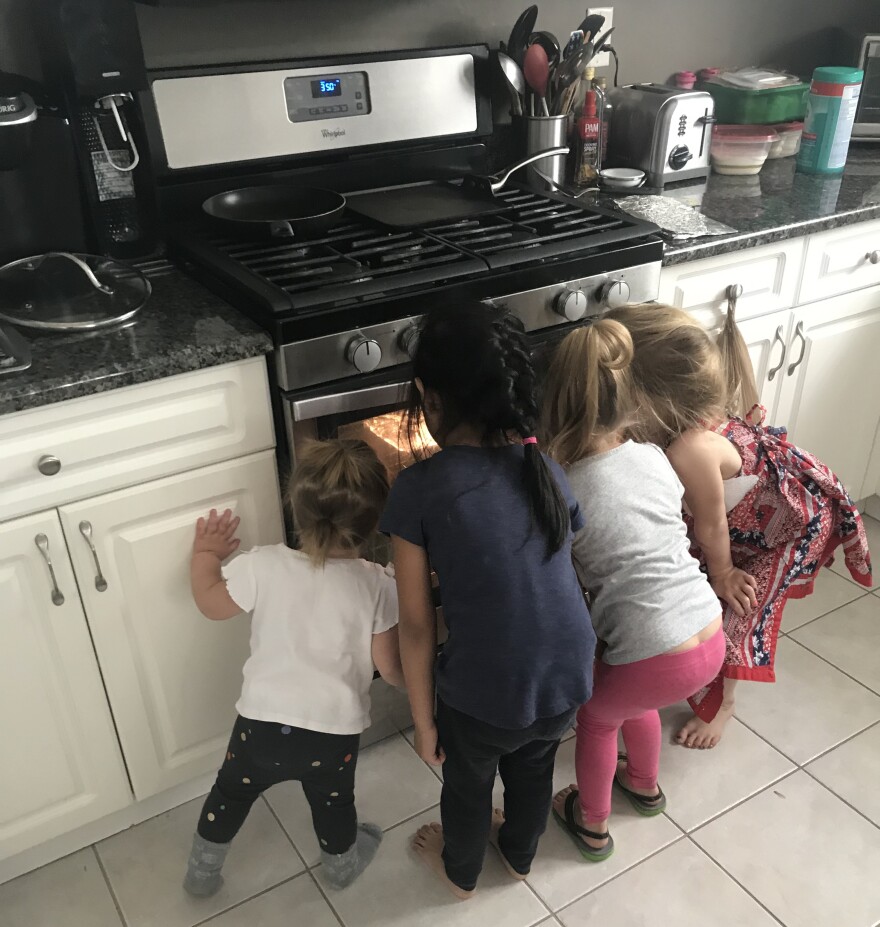The high altitude in Colorado can be a challenge for holiday baking. With small recipe adaptations, though, some expert bakers believe any recipe can be made close to perfection.
Colorado’s high elevation means lower air pressure. That, in turn, means most baked goods rise faster and collapse when baked, leading to an undercooked, gummy center. The state's drier climate also makes liquid ingredients evaporate faster, rendering cookies dry and crumbly.
Those less-than-satisfactory outcomes can be a surprise for many bakers when they visit Colorado from other states, according to Marisa Bunning, a professor in Colorado State University's Department of Food Science and Human Nutrition. There are even some Facebook groups where bakers can share their tips...and failures.
“Many times cookie recipes weren't developed here, but people bring them…from (places at) sea level,” she said. “I know when I baked chocolate chip cookies in Colorado (for the first time), I was completely surprised. The result wasn't what I expected whatsoever.”
Elisa Shackelton is a retired specialist from CSU's food sciences department. She primarily recommends using a fourth to a half a teaspoon less of leavening agents, like baking soda or baking powder. Increasing the egg size can also add more liquid to the mix.
“We talked to an older woman that lived up here in Buena Vista. She got to the point where she stopped using any baking soda or baking powder in her cookie recipes, since she just didn't need it,” Shackleton said.
Shackelton also said most flours in Colorado are not strong enough, or have too low of a protein content. Investing a little more in quality flour is the best way to go.
At the end of the day, Shackleton said she just wants more bakers to be successful.
“Nothing breaks my heart more than somebody, you know, trying to bake something beautiful to share as a gift, and then it fails,” she said. “(Then) they're embarrassed or they can't give the gift, or they just wasted a bunch of money.”

The same kind of thinking applies to toffees and brittles, too. The lower air pressure in Colorado creates a lower boiling point. Without adjusting the recipe, the sugar mixture can become hard or grainy. A good rule of thumb is to decrease the finishing temperature by two degrees Fahrenheit for every 1,000 feet above sea level.
Other quick baking fixes include checking the expiration dates of ingredients, using parchment paper to prevent cookies from flattening too much, or slightly increasing the temperature of your oven. But Bunning said be careful how much you change in a recipe.
"Baking is truly a trial and error process in Colorado,” she said. “We often suggest that we only make one or two modifications at a time. And then also keep good notes.”
This attention to detail in the ingredients and modifications is not only to avoid a cooking catastrophe. Both Shackleton and Bunning agree that holiday baking connects people to their family and friends as well as their traditions—so it's nice when a favorite cookie or coveted pie comes out of the oven just right.
“You can have basic raw ingredients, and those formulas get handed down over the generations for hundreds of years,” Shackelton said. “It might be a toffee recipe or a sugar cookie recipe that somehow magically connects us all in December every year. We're just grateful that somebody's still taking the time to do it.”
Get top headlines and KUNC reporting directly to your mailbox each week when you subscribe to In The NoCo.






